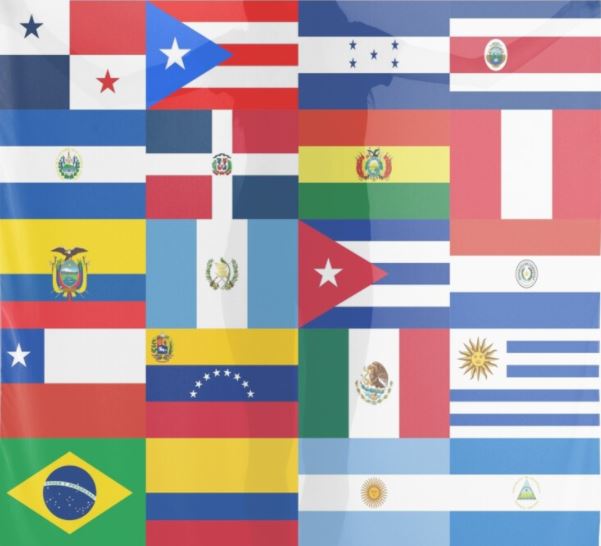Trump: The first assessment of consequences by duties

Light on the initial effects of dictatorial Donald Trump is expected to be throwing new investigations and financial forecasts to be published this week.
A few blocks away from the White House, where President Trump started the trade war three weeks ago, the International Monetary Fund is expected to revise the prospects of the world economy on Tuesday.
« Our new growth forecasts will include remarkable reductions, but not a recession, » IMF Director General Kristalina Georgieva said on Thursday. « We will also see increases in inflation forecasts for some countries. We will warn that prolonged high uncertainty increases the risk of stress in financial markets. «
« The IMF forecasts tend to turn to optimism during potentially subversive crises. » The Alex Isakov and Adriana Dupita of Bloomberg Economics emphasize. « In the four major crises we studied, the fund’s initial assessment of the immediate impact on global development was depreciated by 0.5 percentage points. No matter how much the IMF can degrade growth forecasts at the beginning, the story shows that the final blow will be worse. «
The next day, PMI indicators from Japan to Europe and the US will offer the first coordinated look at the activity of manufacturing and services from April 2, the day Donald Trump described it as « a day of liberalization » and announced the mutual duties.
The IMF’s forecasts, along with processing data, will give more information to the finance ministers and the central bankers who gather in Washington to make the first estimates of the negative impacts of the US president’s policies changing the global trading system.
Their shadow on the world economy is not expected to leave immediately. Fed President Jerome Powell estimates that the US Central Bank is « in good position to expect more clarity » before examining monetary policy changes, while European Central Bank chief Christine Lagarde underlined that the financial prospects are overlapping.
Georgieva hopes that the next few days, which will also meet the heads of the G20 finances, could drop the temperature into world trade.
« We need a more durable global economy, not a slide towards division, » he said. Meetings in Washington « provide a vital dialogue forum in a vital moment. »
Following are the main events expected in the global economy as Bloomberg.
In the US, on Friday, April revised data on the consumer climate and investor expectations of inflation announced by the University of Michigan are expected. The duties, and the danger they have for both the economy and the inflation, concern respondents in recent months.
On Wednesday, the Fed Beige Book will provide data on regional economic conditions and will give a taste of how much government policy and uncertainty affect business decisions.
Earlier in the same day, the government is expected to say marginal increase in new residence sales in March. With mortgage loans largely stuck over 6.5% since October, manufacturers are trying to motivate buyers from the sidelines. The details of residential resale will be issued on Thursday.
An exhibition on the orders of lasting March on the same day will help to provide indications of business demands.
Neel Kashkari, Alberto Musalem, Christopher Waller and Beth Hammack are among Fed officials who have scheduled speeches.
Canada enters the last election campaign, with polls showing that Prime Minister Mark Carney liberals are preceded by about five points – which makes a majority government feasible in the midst of an unstable trade war with the US.
A holiday Monday in most of Europe and with central bankers gathering for IMF meetings, attention will focus on the US. Many policy -making bodies are included in the diary, including the speech of the Bank of England Governor Andrew Bailey on Wednesday.
The main weight in the euro area will be given to the research reports. Consumer confidence in the area is published on Tuesday and the ECB publishes its predictions on the same day.
Investors may pay more attention to PMI indicators that will offer the first picture of activity in manufacturing and services after the tension of the US duty attack in early April.
On Thursday comes the close -up IFO survey of Germany on business confidence, which shows how the climate reacted to businesses in commercial tensions and, in a more positive note, to the agreement on a federal coalition government. Similar indicators in France are published on Friday.
The UK PMI reports are also announced on Wednesday, as well as the latest March public finances. Retail data is published on Friday.
The National Bank of Switzerland publishes the results of the first quarter on Thursday, and President Martin Schlegel addresses a speech at the annual General Assembly the following day.
Finally, the Central Bank of Russia will announce its decision on monetary policy. The recent reduction in inflationary pressures is estimated to be not enough for policymakers to decide on interest rates.
In Asia, the week begins with the announcement of key interest rates from China on Monday with economists predicting to remain unchanged. Recent evidence has shown that growth exceeded forecasts.
Also, on Monday, Indonesia publishes commercial data on March, which will be an indicator of healthy health before the entry into force of Trump’s duties, while the Philippines are likely to present another surplus in the balance of payment for March.
On Tuesday, New Zealand publishes commercial data for March, while Taiwan and Hong Kong announce employment data.
The next day, Indonesia’s central bank is likely to keep interest rates for a third consecutive meeting in an effort to support Rupia, one of the worst coins in Asia this year.
On the same day, April PMI preliminary data on Australia, Japan and India will give a first picture of any impact on manufacturing and services by the US trade war.
Malaysia and Singapore publish inflation data on Wednesday, while South Korea’s consumer confidence is also expected to publish data the day before the country publishes preliminary estimates of the gross domestic product of the first quarter.
Meanwhile, South Korea’s top trading official-Minister of Industry Ahn Duk-Geun-will depart from Seoul for Washington on Wednesday for his third trip to the US after Trump’s swearing-in, with the aim of starting negotiations as his country is launching.
Japan has already begun talks and is now considering revision of its cars’ safety standards to close a deal, the Japanese financial newspaper Nikkei said on Sunday.
On Friday, Japan awaits data on Tokyo’s ICC as well as sales of department stores.
Argentina, who has just secured a $ 20 billion deal with the IMF, announces Tuesday data for February GDP.
Colombia will publish data on February, after the January GDP report has exceeded consensus estimates, pushing some analysts to increase their predictions for 2025 development.
Paraguay’s central bank may boost monetary policy with inflation having increased by 100 basis points in four months to 4.4%.
Brazil publishes inflation data in mid -April on Friday, and if March is a guide, overall printing should push further over the top of the central bank’s goal.
Mexico will announce data on both February economic activity and consumer prices reports in the middle of the month.
The negative printing of January GDP puts Mexico’s economy on a second consecutive quarterly shrinkage that meets the definition of technical recession.
Inflation can be kept close to the previous measurement of 3.93%, just below the ceiling of the Central Bank’s target for inflation. Banco de Mexico, or Banxico, meets the next time in mid -May to consider its reference rate, which is now at 9%.
Source: OT










